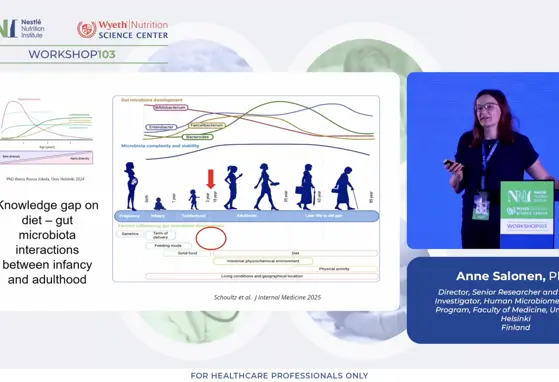Babies acquire food dislikes before likes
Basic flavour preferences are known to start developing even before birth – but revulsion may be less changeable than liking in infants, according to new research. Writing in the journal Flavour, the French researchers said they found that infants were more likely to react strongly to unpleasant food odours than to those that adults commonly perceive as pleasant.
Most studies of how children react to food odours has been conducted in new-born babies and those older than two. This latest study aimed to fill the gap in our knowledge of how food preferences develop, by following the same 235 infants and challenging them with the same food odours at the age of 8 months, 12 months and 22 months.
The researchers presented the infants with eight odours in bottles – four rated by adults as pleasant, including strawberry, apple and vanillin, and four rated by adults as unpleasant, such as rotten egg and shrimp. They then measured the infants’ reaction to the odours by their ‘mouthing’ of the bottles, meaning direct contact of the bottles in the area around the babies’ nose and mouth, and avoidance.
“They [infants] avoid most of the food odours considered as unpleasant by adults, but their attraction towards food-odours judged pleasant by adults does not appear to be fully shaped at this early age,” the study’s authors found. “Taken as a whole, the present results highlight both the plasticity of hedonic responses to food odours, and relatively stable avoidance behaviours towards some unpleasant odours.”
During the first two years of life, the eating pattern of infants diversifies from a milk-based diet to baby foods to table foods – and by two years, many infants become reluctant to try new foods. Therefore, the researchers aimed to assess how olfactory responses developed during this period of transition.
They hypothesised that infants’ likes and dislikes would increasingly mirror those of adults as they transitioned toward regular table foods. However, although their reaction to unpleasant odours tended to align with adult reactions, their reaction to odours rated as pleasant remained more neutral than the adult ratings during the first two years of life.
The researchers also aimed to discover any differences between how male and female babies reacted to the food odours, but they found no difference between genders.
Source: Flavour 2013, Vol. 2 Iss. 19 Infants’ hedonic responsiveness to food odours: a longitudinal study during and after weaning (8, 12 and 22 months).Sandra Wagner, Sylvie Issanchou, Claire Chabanet, Luc Marlier, Benoist Schaal and Sandrine Monnery-Patris
If you liked this post you may also like

Mindful Microbes: The Interplay Between Environment, Gut Microbiome, Brain, and Behavior

Exploring the Crosstalk: Nutrition, Microbiome, and Cardiometabolic Health

Guiding the Growing Gut: Microbiome and the Digestive Development of Children

Nourishing the Microbiome at Preschool age: Dietary influences from infancy to present